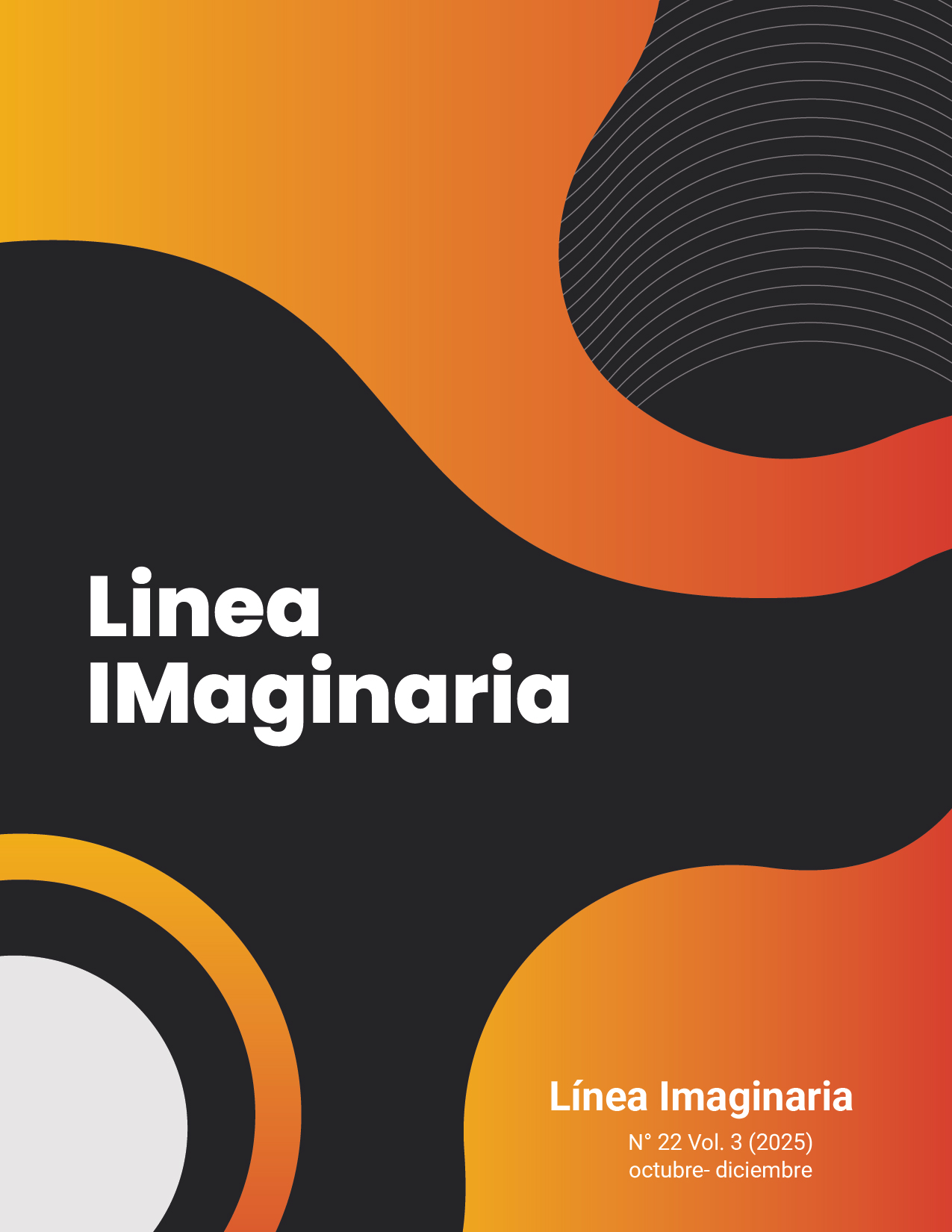THEORETICAL REFLECTIONS ON THE IMPORTANCE OF READING FOR THE DEVELOPMENT OF ORAL AND WRITTEN LANGUAGE IN COLOMBIAN ELEMENTARY SCHOOL STUDENTS
DOI:
https://doi.org/10.56219/lneaimaginaria.v3i22.4670Keywords:
Importance of reading, oral language, written language, eading habits and teaching models.Abstract
To deepen on the components of the educational fact leads to reimagine new teaching options; to achieve to shorten the existing gaps between what are the traditional and contemporary modes; the time has come to empower new knowledge, resources and strategies that go hand in hand with what is presented in society such as technology; it is time to scrutinize and look at what should be done is so the following general objective: to generate theoretical reflections on the importance of reading for the development of oral and written language of students of Colombian basic education. The methodology used is based on qualitative research, together with the interpretative paradigm through the hermeneutic method, which is made concrete with the technique of content analysis; that is to say, a systematic review of some materials and theoretical positions of authors regarding the topic being dealt with is carried out. This brought as a result that reading is fundamental in the formation and academic training of students and it was concluded that the previous knowledge and existing experiences should be applied in educational institutions with the intention of achieving a teaching model to strengthen the habit of reading and thus to understand and comprehend the reality that is lived today, which is immersed in technological trends.
Downloads
References
Ballesteros, D. (2016). El lenguaje escrito como canal de comunicación y desarrollo Humano. Instituto Tecnológico y de Estudios Superiores de Monterrey Estado de México, México. Revista Razón y Palabra, volumen 20 numero 93. https://www.redalyc.org/pdf/1995/199545660027.pdf
Borsotti, C. (2009). Temas de metodología de la investigación en Ciencias Sociales empíricas. En Ideas en debate: serie educación. Buenos Aires: Miño y Dávila.
Bustillo, E. (2023). No aprender a leer a tiempo, el mayor problema educativo en Colombia. Artículo de opinión. https://contextomedia.com/no-aprender-a-leer-a-tiempo-el-mayor-problema-educativo-en-colombia/
Chávez, S., Macías, E., Velázquez, V. y Vélez, D. (2020). La expresión oral en niño preescolar. Universidad Autónoma del estado de Hidalgo. Boletín científico número 9. https://www.uaeh.edu.mx/scige/boletin/tlahuelilpan/n9/index.html
Chomsky, Noam, (1983). El lenguaje y el conocimiento inconsciente, en: Reglas y representaciones. México: FCE.
Echeverría, R., (2007). Ontología del Lenguaje. Comunicaciones Noreste Ltda. Chile.
Espinoza Freire, Eudaldo Enrique. (2020). La investigación cualitativa, una herramienta ética en el ámbito pedagógico. Conrado, 16(75), 103-110. Epub 02 de agosto de 2020. de http://scielo.sld.cu/scielo.php?script=sci_arttext&pid=S1990-86442020000400103&lng=es&tlng=es.
Galindo, D., y Correa, R. (2019). Lectura, escritura y oralidad en la escuela desde la perspectiva sociocultural. Revista de investigación, desarrollo e innovación. Volumen 10, número 1. http://www.scielo.org.co/scielo.php?script=sci_arttext&pid=S2027-83062019000200163 DOI: https://doi.org/10.19053/20278306.v10.n1.2019.10020
Latorre, Castro y Potes, (2018) Las TIC, las TAC y las TEP: Innovaciones educativas en la era conceptual. Universidad Sergio arboleda. Bogotá.
Ministerio de Educación Nacional. (1994). Ley General de educación, Ley 115. Colombia. Congreso de la República de Colombia. https://www.mineducacion.gov.co/1621/articles-85906_archivo_pdf.pdf
Molina, B., y Pérez, M. (2019). Desafíos del modelo colombiano pedagógico para las habilidades lectoras en primer grado de la educación básica primaria. Universidad Nacional del Centro de Perú. Revista Horizonte de la Ciencia, volumen 10, número 18. https://www.redalyc.org/journal/5709/570968990009/html/ DOI: https://doi.org/10.26490/uncp.horizonteciencia.2020.18.420
Ramírez, V. (2017). Lenguaje oral-lectoescritura. Colegio Internacional Ausiás March. https://www.ausiasmarch.com/lenguaje-oral-lectoescritura/
República de Colombia (2009). Decreto 1290. https://www.funcionpublica.gov.co/eva/gestornormativo/norma.php?i=4684
República de Colombia. (2002). Decreto 230. https://www.funcionpublica.gov.co/eva/gestornormativo/norma.php?i=4684
Rosenblatt, L. (1996). La teoría transaccional de la lectura y la escritura. Buenos Aires: IRA.
Universidad Pedagógica Experimental Libertador (2022). Manual de Trabajos de Grado de Especialización y Maestrías y Tesis Doctorales. Vicerrectorado de investigación y postgrado. Fedupel. Caracas, Venezuela.
Zubiría, J. (20219. Cinco estrategias para mejorar la lectura. Artículo de opinión. https://www.elespectador.com/opinion/columnistas/julian-de-zubiria-samper/cinco-estrategias-para-mejorar-la-lectura-en-las-escuelas-column/
Downloads
Published
How to Cite
Issue
Section
License

This work is licensed under a Creative Commons Attribution-NonCommercial-ShareAlike 4.0 International License.
La revista Línea Imaginaria conserva los derechos patrimoniales (copyright) de las obras publicadas, que favorece y permite la reutilización de los mismos bajo la licencia Creative Commons Atribución-NoComercial-CompartirIgual 4.0 , por lo cual se pueden copiar, usar, difundir, transmitir y exponer públicamente, siempre que se cite la autoría y fuente original de su publicación (revista, editorial, URL y DOI de la obra), no se usen para fines comerciales u onerosos y se mencione la existencia y especificaciones de esta licencia de uso. Si remezcla, transforma o crea a partir del material, debe distribuir su contribución bajo la misma licencia del original.













